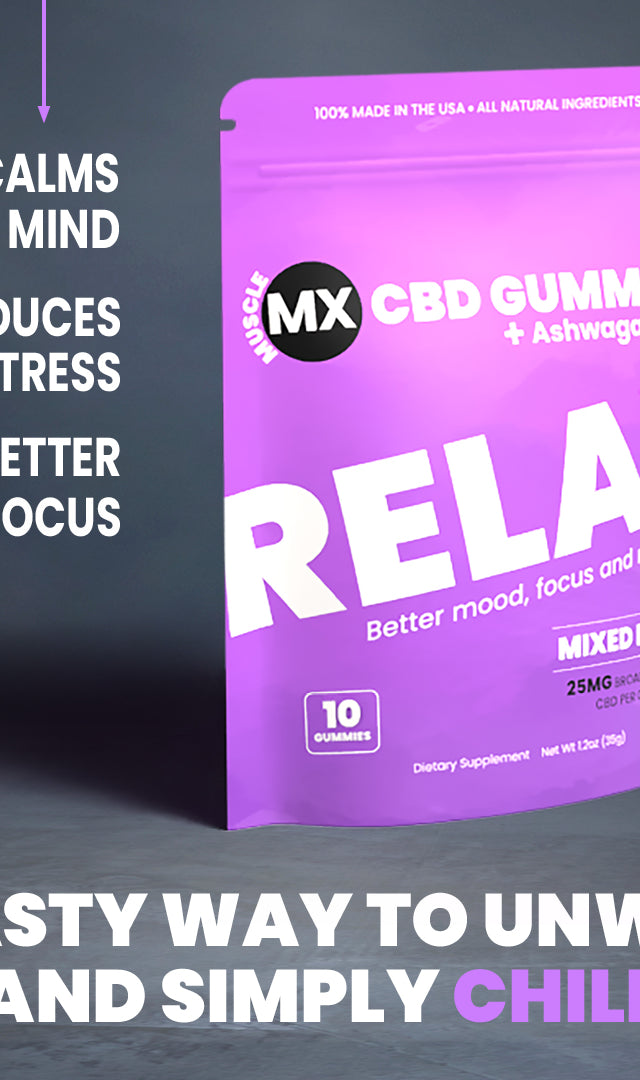Why Should I Care About Anything? A Psychologist Reveals The Answer
Key Takeaways
Understanding why you've stopped caring about life is the first step toward emotional recovery and reconnecting with what matters most.
-
Apathy differs from temporary disinterest - It's persistent across multiple life areas and often doesn't concern the person experiencing it, unlike normal mood fluctuations.
-
Multiple factors can trigger emotional detachment - Depression, chronic stress, major life changes, trauma, and existential disconnection all contribute to not caring anymore.
-
Emotional numbness impacts everything - It strains relationships, reduces work productivity, and creates a dangerous loss of purpose that can worsen mental health.
-
Recovery starts with small, manageable steps - Set tiny daily goals, reconnect with supportive people, practice mindfulness, and consider professional help when needed.
-
Professional support is crucial for persistent apathy - If emotional detachment continues despite self-help efforts, therapy can provide essential tools for rebuilding emotional engagement.
The path back to caring requires patience and intentional action, but your awareness of the problem already signals hope for recovery and renewed connection to life's meaning.
Introduction
"Why should I care about anything?" You're not alone if this question has been on your mind lately. The World Health Organization reports that anxiety and depression shot up by 25% worldwide during the pandemic's first year. More people feel disconnected from life than ever before.
You might be dealing with temporary low motivation or a deeper sense of apathy. Understanding why nothing seems to matter anymore can help you take the first step toward getting better. Studies show that apathy shows up in 31% to 60% of people with various conditions. Unlike depression, apathy doesn't always come with constant sadness or feelings of worthlessness. The main signs are emotional numbness and indifference that slowly make life feel meaningless.
Let's look at what causes this emotional detachment and how it changes your life. Better yet, we'll explore proven strategies from psychologists that can help you reconnect with what matters. Research shows that mindfulness-based cognitive therapy can reduce depression and anxiety symptoms while making life better overall.
What does it mean to not care about anything?
You might have felt a complete emptiness inside—where nothing excites you and things you used to enjoy seem meaningless. This deep emotional void goes beyond simple boredom or temporary lack of interest. Psychologists recognize these as important signs of specific mental states.
Understanding apathy and anhedonia
Apathy and anhedonia usually show up together but represent different psychological experiences. Apathy comes from Greek roots meaning "without feeling or suffering" and shows up as a lack of motivation, interest, and emotional involvement. You don't just not care—you don't even care that you don't care.
Anhedonia specifically points to not being able to feel pleasure or joy from activities that were once enjoyable. The term literally means "without pleasure" in Greek. Someone with anhedonia might understand why relationships or activities matter, but they just can't enjoy them.
Studies show these conditions often overlap—people who experience more apathy usually report more anhedonia too. These two create a challenging mental state where both drive and enjoyment decrease at the same time.
How it is different from temporary disinterest
We all go through periods where we lose interest or motivation. In spite of that, clinical apathy is different from these normal ups and downs. Temporary disinterest usually:
- Focuses on specific situations rather than everything
- Gets better naturally after a while
- Makes the person worry about it
True apathy stays around in many situations and doesn't bother the person who has it—though it worries their loved ones. On top of that, research shows that apathy in neurological disorders affects approximately 60% of individuals with cortical conditions and 40% with subcortical disorders.
What's more, unlike simple boredom, apathy can dull your emotions—making it hard to show both good and bad feelings. This numbing creates a gap between you and your emotional life, making everything seem flat and colorless.
Why this feeling can be alarming
This emotional disconnect creates serious risks to life quality and daily function. Research shows that ongoing apathy links to:
- Declining function and trouble with daily activities
- More stress for caregivers
- Higher care costs due to early facility placement
- Higher death rates
These concerning outcomes show how apathy can stop you from chasing goals, keeping relationships, and experiencing life's important moments. Without treatment, anhedonia may lead to major depression, isolation, anxiety, relationship problems, and even thoughts of suicide.
The most worrying part is that apathy often points to underlying brain or psychological conditions that need attention. Population studies of cognitive decline show it reaches 31.9%, and research indicates it tends to stick around rather than go away. Healthy people can also experience this condition, especially after age 65.
Not caring about anything creates an odd trap—the very condition that needs help also removes any desire to seek it. This makes it vital for others to recognize and address this concerning psychological state.
Common signs you're emotionally checked out
Learning to spot signs of emotional detachment is vital to deal with this worrying condition. These warning signs usually show up slowly, which makes them hard to notice until they affect your life by a lot.
Loss of interest in hobbies and people
The clearest sign that someone's checking out emotionally shows up as pulling away from activities and relationships they used to love. This goes deeper than just getting bored—it shows a basic change in how they connect with the world around them.
You might notice yourself:
- Pulling back from social events and choosing to be alone more
- Not caring about hobbies that used to get you excited
- Having trouble staying interested when talking to friends or family
- Seeing fun activities turn into things you have to force yourself to do
This pulling away from others happens bit by bit. Your friends might notice you missing from get-togethers before you see it yourself. It's worth mentioning that someone dealing with apathy might seem to have fun if others push them to join in. But deep down, they still lack the drive to make these connections on their own.
Research shows this pulling away usually hits several parts of life at once—you don't just lose interest in one hobby, but end up less involved in activities of all types.
Avoiding responsibilities and goals
People who've checked out emotionally often start dodging their responsibilities too. This doesn't happen because they can't handle tasks, but because they've lost their drive to get things done.
Signs include:
- Putting off important deadlines
- Being careless with money (missing bill payments, spending without thinking)
- Making quick decisions without thinking about the risks
- Needing others' help more often with tasks you used to handle yourself
There's also a pattern where people keep pushing things to "later" without really planning to do them. Many say they feel swamped by tasks that used to seem easy, which creates a cycle. Avoiding responsibilities might help with anxiety briefly but makes problems bigger in the long run.
This avoiding behavior often links to something deeper: trying to escape uncomfortable feelings of not being good enough or fear of failing. So what looks like being lazy might actually be a way to protect yourself from emotional pain.
Feeling emotionally numb or indifferent
The most concerning sign shows up as emotional numbness—you stop having normal emotional responses to both good and bad events.
Key signs include:
- Feeling cut off from yourself and others
- Having an empty feeling that won't go away
- Finding it hard to identify or express your feelings
- Describing yourself as feeling "flat," "numb," or "hollow" inside
This emotional blunting affects both positive and negative emotions. You might watch something funny without laughing or hear bad news without feeling upset. Studies show this numbness can make you feel really alone, even with people all around you.
Someone dealing with emotional numbness once said: "I feel invisible, like I'm a ghost. I watch my family engaging with each other, but feel like there's an invisible barrier that keeps me from joining them". Another person shared: "The world around me often seems slightly superficial, [like] I am simply going through the motions and can't connect to my environment".
This numbness isn't just about feeling sad—it means not feeling anything at all, which creates a troubling gap between you and your emotional life.
Why do I not care about anything anymore?
Apathy can take control of your life, and knowing how to identify its mechanisms becomes essential to recover. Your sudden loss of interest and motivation usually has deeper reasons behind it. Let's look at the most common factors that might explain why you've stopped caring.
Mental health conditions like depression
Depression often demonstrates itself as a lack of interest or pleasure in activities you once enjoyed. One in six people will experience a major depressive episode during their lifetime, and up to 16 million adults suffer from clinical depression each year. Depression goes beyond temporary sadness and changes your thinking, emotions, and behavior persistently.
Apathy remains a core symptom for many people with depression. This emotional numbness makes everything feel less important or meaningful. Apathy and depression often overlap but remain distinct conditions—you can experience one without the other. Depression typically brings additional symptoms like sadness, sleep problems, and feelings of worthlessness that may not appear with apathy alone.
Chronic stress and burnout
Your capacity for emotional involvement can drain gradually with prolonged stress exposure. Your brain tries to handle daily stress at first, but failing to do so connects to developing psychological disorders like depression. This chronic stress eventually creates burnout—a psychological syndrome marked by overwhelming exhaustion, cynicism, and feelings that nothing matters.
Burnout is different from normal fatigue in three ways: emotional exhaustion, cynicism toward your work or life, and a sense of meaninglessness. Exhaustion looks most like traditional stress symptoms and predicts stress-related health outcomes. Recent surveys show that 79% of employees faced work-related stress, with 44% reporting physical fatigue—a 38% increase since 2019.
Major life changes or trauma
Life transitions—both positive and negative—can trigger emotional detachment. Research confirms that events like losing a loved one, job loss, divorce, or retirement increase stress levels. This stress affects your personal, relational, and social functioning.
People showing clinical signs of depression are 2.5–9.4 times more likely to have faced a critical life event before their first depressive episode. About half of trauma survivors reported symptoms of derealization (feeling detached from their environment) within two weeks. While this dissociation protects initially, it raises the risk of mental illness when it continues.
Spiritual or existential disconnection
The root cause sometimes isn't clinical but existential—you might question your purpose, meaning, or place in the world. Spiritual apathy often leaves you feeling disconnected from what gave your life significance. Even devoted people struggle to feel passionate about things that should matter.
An existential crisis shows up as questioning your identity, purpose, and life choices. You might think about death more than usual, feel disconnected from others, and lose interest in activities you used to enjoy. This questioning grows stronger during major life transitions or after traumatic events that shake your core beliefs about life.
How not caring affects your life and relationships
Emotional detachment doesn't exist by itself—it gradually spreads through every part of your life. Not caring creates ripples that go way beyond your inner experience and change how you function in the world.
Effects on work and productivity
Emotional detachment severely hurts professional performance. People who feel apathy usually work slower and make more mistakes. Your job could be at risk from this gradual decline in quality and output.
Research shows disengaged employees cost the U.S. economy about $1.90 trillion in lost productivity. Money isn't the only problem—apathy creates troubling workplace dynamics. One team member's disengagement often spreads to others, which lowers team morale and creates a toxic environment.
The symptoms usually include:
- Counting down hours until leaving work
- Avoiding simple tasks like checking emails for days
- Skipping meetings or barely participating
- Doing minimal work on assignments
Strain on personal relationships
Personal connections suffer the most from emotional detachment. Relationship partners pull away from shared dreams as they become less invested in each other. This change turns loving partnerships into mere "pit stops"—places to recharge before moving on with life elsewhere.
People who are emotionally detached find it hard to express feelings, understand others' emotions, or ask for help. They also tend to avoid emotional intimacy, which creates a self-reinforcing pattern of isolation.
Family members and friends start with compassion, but their patience runs out after prolonged emotional disconnection. Their initial concern turns to frustration when they face continued indifference.
Loss of purpose and direction
Mental health faces serious risks from lack of purpose. Studies show that 58% of young adults say they lack "meaning or purpose" in their lives, and half report this hurts their mental health.
This purpose deficit affects the body directly. People with less purpose have higher cortisol levels, which increases their risk of anxiety, depression, weight gain, digestive problems, and heart disease. Failed goals relate to decreased motivation, more negative feelings, and lower self-esteem.
People in the lowest quartile for purpose are almost twice as likely to develop depression ten years later. This link between purposelessness and poor mental health creates a dangerous cycle—less purpose leads to more depression, which makes it harder to find meaning.
How to start caring again: psychologist-backed tips
Breaking free from apathy needs action that you've thought about carefully. Your trip back to caring starts with practical steps that help rebuild your emotional connections.
Start with small, manageable goals
Big changes can feel overwhelming when you're emotionally drained. Simple changes to your daily routine work best - like having a glass of water first thing in the morning. Set tiny goals you can achieve to build momentum. Rather than pushing yourself to read an entire book, start with just one page each day. These small steps create ripples that build lasting motivation.
Reconnect with people and community
Human connection is a powerful way to fight emotional detachment. Spend time around people who lift your spirits and inspire you. Look for groups that share your interests, such as a book club or fitness class. One-on-one connections help you learn about others' interests and concerns.
Practice mindfulness and gratitude
Mindfulness reduces stress and improves how you handle negative thoughts. Body scan meditation works well - just mentally scan from head to toe and notice sensations without judgment. A gratitude journal where you write three things you appreciate each day can help. These habits change your mindset from emptiness to appreciation.
Seek professional help if needed
Professional support might be right if emotional detachment continues despite your efforts. A healthcare provider can help you understand why it happens and suggest treatments. Therapy gives you tools to open up emotionally and build trust. Note that asking for help shows strength, not weakness.
Try new routines or hobbies
New routines add structure that helps curb apathy. Regular wake times and morning activities make a difference. Try unfamiliar activities that might interest you, even if they're outside your comfort zone. Life becomes exciting again when you make conscious choices instead of running on autopilot.
Think about natural aids like CBD gummies
CBD products help boost mood for some people. Research shows CBD might work with serotonin receptors to support emotional balance. CBD gummies are convenient and discreet - users say they help calm anxiety and improve mood. If you explore this option, start with small doses to see how your body responds.
Conclusion
The trip through emotional detachment can feel overwhelming. Apathy and anhedonia might make life seem colorless and empty, but these feelings rarely last forever. Learning about the mechanisms - whether depression, chronic stress, trauma, or existential questioning - is the first significant step toward recovery.
Early warning signs help you get better results from treatment. Something deeper needs attention when you notice emotional numbness, withdrawal from activities, and avoiding responsibilities. These symptoms don't just change your internal experience - they spread outward and affect your work, strain close relationships, and slowly erode your sense of purpose.
Recovery happens step by step through deliberate actions. Small, achievable goals create momentum where big changes might overwhelm you. Human connection plays a key role to break through emotional barriers. Mindfulness practices, new routines, and professional support help rebuild your ability to participate and feel joy.
Your mind uses emotional detachment as a protective shield against overwhelming feelings or circumstances. This protective response makes sense, but it ends up disconnecting you from life's meaning. The strategies in this piece are a great way to get back to caring, but you need patience during this process.
Life without emotional connection lacks the depth and meaning we naturally want as humans. If you find yourself wondering why you should care about anything, don't lose hope. Your questioning shows that part of you still wants connection and meaning. This awareness, even if slight, forms the foundation to rebuild your capacity for engagement, purpose, and joy.
FAQs
Q: Why do people sometimes stop caring about things in life?
A: People may stop caring due to various reasons like depression, chronic stress, major life changes, trauma, or feeling disconnected from their sense of purpose. It's often a gradual process that can stem from underlying mental health issues or challenging life circumstances.
Q: What are some signs that someone is emotionally checked out?
A: Common signs include losing interest in hobbies and relationships, avoiding responsibilities, feeling emotionally numb or indifferent, withdrawing from social activities, and struggling to maintain interest in conversations or tasks that were previously enjoyable.
Q: How does emotional detachment affect work and relationships?
A: Emotional detachment can significantly impact work productivity, leading to slower work with frequent mistakes. In relationships, it can create strain by making it difficult to express feelings, understand others' emotions, and maintain emotional intimacy, potentially leading to isolation.
Q: What are some psychologist-recommended ways to start caring again?
A: Psychologists recommend starting with small, manageable goals, reconnecting with supportive people, practicing mindfulness and gratitude, trying new routines or hobbies, and seeking professional help if needed. These steps can gradually help rebuild emotional engagement and motivation.
Q: Is it normal to question why one should care about anything?
A: Yes, it's not uncommon to experience periods of questioning life's meaning or purpose, especially during major life transitions or after traumatic events. However, persistent feelings of apathy or lack of care may signal a need for professional support to address underlying issues and rediscover a sense of purpose.
References
https://my.clevelandclinic.org/health/symptoms/25155-anhedonia
https://cerkl.com/blog/apathy-at-work/
https://www.harleytherapy.co.uk/counselling/apathy-stop-caring.htm
https://www.frontiersin.org/journals/psychology/articles/10.3389/fpsyg.2023.1288774/full
https://my.clevelandclinic.org/health/symptoms/24824-apathy
https://www.healthline.com/health/apathy
https://psychcentral.com/blog/do-you-know-someone-with-responsibility-deficit-disorder
https://www.healthline.com/health/feeling-numb
https://www.mayoclinic.org/diseases-conditions/depression/symptoms-causes/syc-20356007
https://www.medicalnewstoday.com/articles/apathy-depression

















































